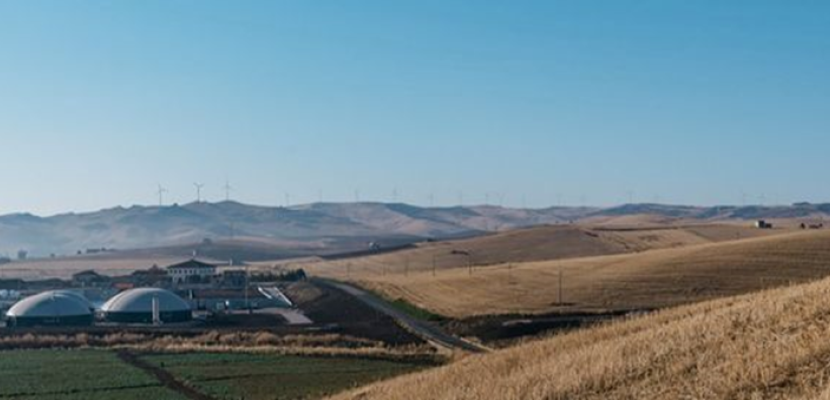
AssoroBiometano

About this good practice
The problem derived from the right management of agro-industrial by-product. For many farms in the agro-industrial sector, the processing of waste is a problem in terms of management. Waste from processing is often considered to be waste.
The solution is the conversion of organic matrices into a biofuel (biomethane) for transportation instead of natural degradation into CO2 and then going into the atmosphere. The feedstocks remain in the digesters and then pass into the covered storage tank. The double-stage mesophilic process allows to have a safe and flexible fermentation process, ensuring appropriate retention times. The storage coverage ensures complete degradation, efficient use of biomass and a greater reserve of biogas. The biogas is sent to the upgrade system for the production of biomethane.
Another output is the production of an organic fertilizer (digestate) capable of restoring soil fertility, important for quality cereal cultivation and other agricultural activities requiring stable organic matter.
It is one of the first Italian plants to produce and distribute biomethane for automotive use in agriculture and agro-industry sectors, a virtuous example of a circular economy that recognizes to Sicily a key role in the energy transition.
This is a private company founded by 3 farms/firms that produce poultry manure, citrus and tomato pealing (pastazzo), olive pomace (olive water waste). They have received grants from Italian Ministry of Economic Development.
Resources needed
Total investment 12 million €. 60% construction of buildings; 40% machinery and technologies.
Intervention of public sector is 40% of the total.
9 people involved in the management of plant. (2 administrative sector; 7 management of plant).
2023 was spent 736.509 € for the management .
Evidence of success
Assoro Biometano facility produces 4,4 million Sm3/year of advanced biomethane from 74,500 tons per year of livestock effluents, agri-food by-products, including waste from citrus processing, olive pomace and tomato peelings. Potentially it is able to power almost 3K cars and save 3,4K tons of oil equivalent, avoiding the emission of 8,5K tons of CO2 into the atmosphere.
The biomethane produced is sold to the Catania transports company, which uses it for public buses and municipal vehicles.
Potential for learning or transfer
The creation of a virtuous cycle of circular economy, in which carbon is transformed from an environmental problem (emission of greenhouse gases) to a valuable element to fight climate change and to act as a driving force for related agricultural activities is important to disseminate the initiative in other countries.
This experience shows that anaerobic digestion can benefit the whole territory and other regions. In fact, it provides a useful destination for by-products that otherwise would have an uncertain future and of little interest, also, it increases the value of local products that can be more competitive on the market, thanks to the fully sustainable supply chain.
These supply chains inevitably generate noble by-products (citrus pulp, olive pomace, tomato peelings, etc.).
The initiative could be extended to associations or cooperatives of producers/processors of agricultural products to be processed which could reduce waste disposal costs.
Further information
Images

